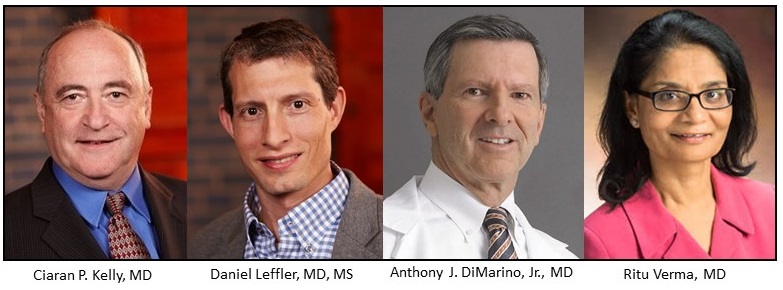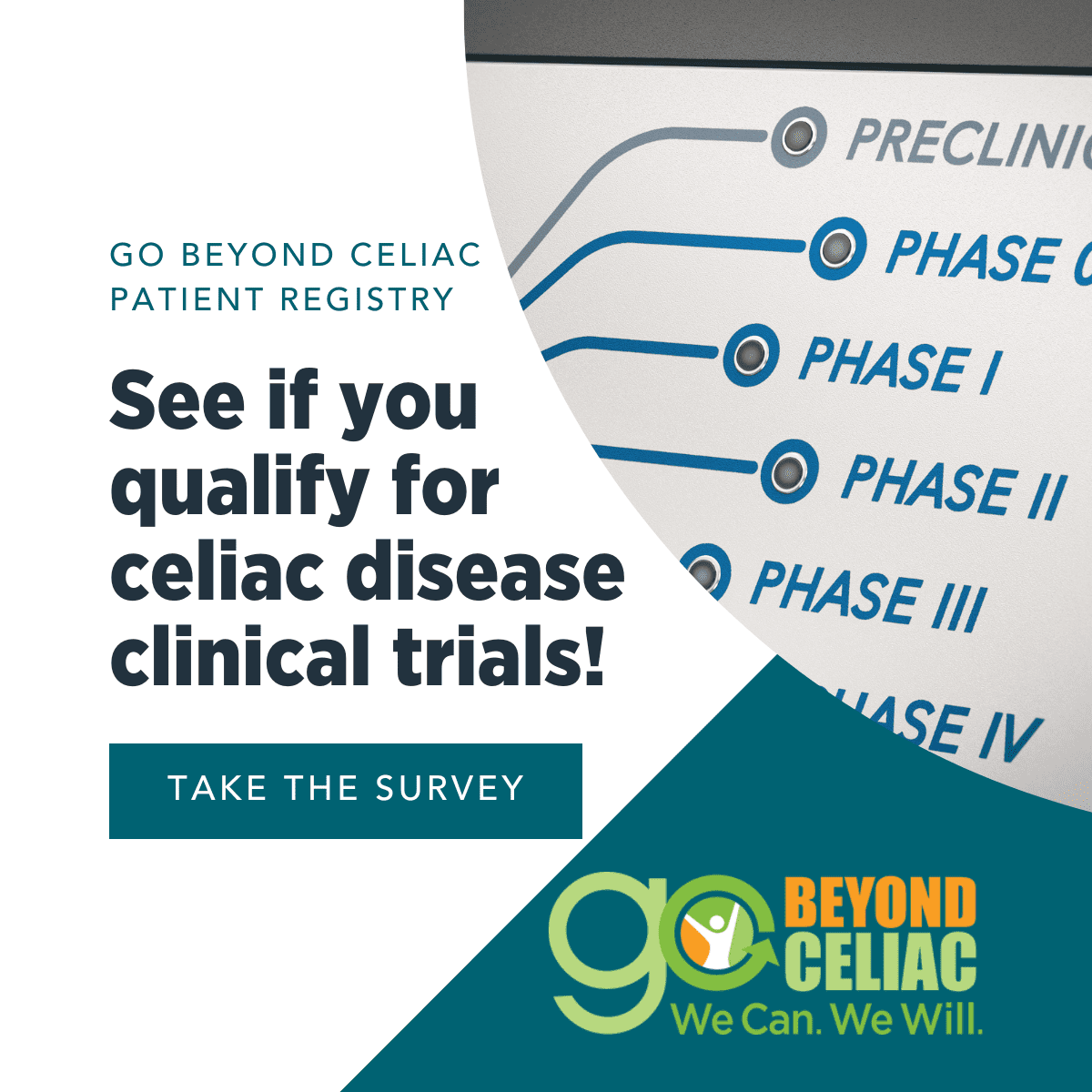- Ciaran P. Kelly, MD,Director, Celiac Center and Director, Gastroenterology Fellowship Training, Beth Israel Deaconess Medical Center; Professor of Medicine, Harvard Medical School and a member of the Beyond Celiac Board of Directors.
- Daniel Leffler, MD, MS,Medical Director, Clinical Science, Gastroenterology TAU, Takeda Pharmaceuticals, USA Inc.; Director of Research, The Celiac Center at BIDMC, Beth Israel Deaconess Medical Center and a member of the Beyond Celiac Scientific/Medical Advisory Council.
- Anthony J. DiMarino, Jr., MD,Chief, Division of Gastroenterology & Hepatology, Thomas Jefferson University Hospital and a member of the Beyond Celiac Scientific/Medical Advisory Council.
- Ritu Verma, MD,Section Chief, Gastroenterology, The Children’s Hospital of Philadelphia; Professor of Clinical Pediatrics, Perelman School of Medicine at the University of Pennsylvania and a member of the Beyond Celiac Scientific/Medical Advisory Council.
Dr. Kelly is the author of more than 50 studies related to celiac disease, including a comprehensive review of the Diagnosis and Management of Celiac Disease published by the American College of Gastroenterology. He’s also been involved in research into new treatments based on recognition of the substantial burden the lifelong gluten-free diet creates for celiac disease patients. Dr. Kelly has investigated the effectiveness of the gluten-free diet, with research concluding that up to 50 percent of patients show intermittent or ongoing celiac disease activity even when they are following the diet. And he has explored whether the intestinal biopsy is always needed to diagnose celiac disease.
Dr. Kelly and Dr. Leffler have collaborated on a number of studies. Their most recent research, done with other scientists and published in September 2017, found that blood tests used to detect intestinal damage in celiac disease patients who are following the gluten-free diet are not very effective, having a sensitivity of 50 percent. The study called for more-accurate, non-invasive markers of damage in children and adults. Dr. Kelly and Dr. Leffler have also researched a drug that was shown to reduce symptoms in celiac disease patientsbetter than the gluten-free diet alone.
Their diverse body of work also includes: evidence that long-term follow-up care is needed because even patients who follow the gluten-free diet have persistent gastrointestinal symptoms; development of better ways to research the impact of celiac disease on quality of life; evaluation of the way low socioeconomic status reduces the chance of celiac disease diagnosis; a study of how psychological characteristics influence how well patients follow a gluten-free diet; and the relationship between eating disorders and celiac disease.
Additionally, Dr. Leffler has researched: the use of a test that showed better results than blood tests currently used to predict intestinal healing; ways to uses the gluten challenge in clinical trials; and IGA deficiencies in celiac disease in the United States. He recently drew attention to the lack of federal funding for celiac disease in a review of data from the National Institutes of Health.
Dr. DiMarino participated in a study that concluded physicians who treat celiac disease patients often do not recommend that first degree relatives be screened for the condition, even though they are in a high-risk group. He has also studied the increased rate of pregnancy complications in women who have celiac disease and was a study coordinator for research into a new drug to treat celiac disease.
Dr. Verma is an author of a North American Society for Pediatric Gastroenterology, Hepatology and Nutrition clinical report on the diagnosis and treatment of gluten-related disorders and an editorial regarding the screening of children with celiac disease for thyroid disease in the Journal of Pediatrics.
The Symposium, sponsored in part by Takeda Pharmaceuticals U.S.A., Inc. and supported by media partner CBS Radio Philadelphia, is free to the public. It is designed to spur dialogue about research/community partnerships and encourage celiac disease community involvement to improve the quality of life for people with this serious, genetic autoimmune disorder.
To register, visit: www.BeyondCeliac.org/boldbeyondsymposium.



